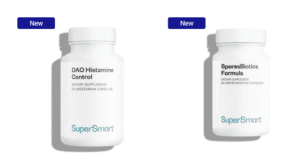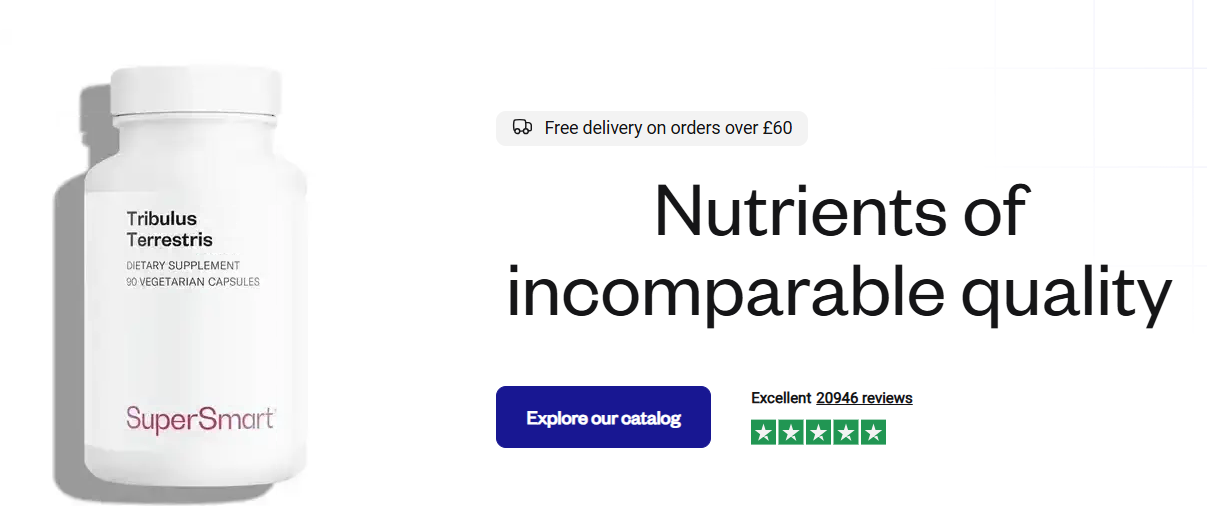In today’s fast-paced world, our bodies often struggle to keep up with the demands of daily life. Busy schedules, poor diets, and stress can lead to vitamin deficiencies that zap our energy and impact our overall well-being. That’s where vitamins and supplements come in—a powerful ally in supporting your health journey.
Imagine being able to unlock your body’s full potential through simple nutritional enhancements. Supersmart vitamins offer a comprehensive solution for those looking to fill the gaps in their diet. With numerous options on the market, understanding how these supplements work can transform not only your health but also your lifestyle.
Ready to take charge of your wellness? Let’s delve into why vitamins are essential, how supersmart choices can benefit you greatly, and tips for seamlessly integrating them into your routine!
The Importance of Vitamins and Supplements
Vitamins and supplements play a crucial role in maintaining overall health. They help fill nutritional gaps left by our diets, ensuring we get essential nutrients that support bodily functions.
Each vitamin has unique benefits. For instance, Vitamin C boosts the immune system, while B vitamins enhance energy levels and cognitive function. Without adequate intake of these vital nutrients, our bodies may experience fatigue or increased susceptibility to illness.
Supplements can be especially beneficial for individuals with dietary restrictions or specific health concerns. Vegetarians might lack certain B12 levels, while pregnant women need extra folic acid for fetal development.
Incorporating the right vitamins into your routine can lead to better skin health, improved mood regulation, and enhanced physical performance. It’s about more than just preventing deficiencies; it’s about thriving at your best every day!

Common Vitamin Deficiencies and How to Identify Them
Vitamin deficiencies can sneak up on you, often masked by vague symptoms. Fatigue and weakness are common signs that might indicate a lack of iron or vitamin D. If you feel tired all the time, it may be worth investigating your nutrient intake.
Skin issues such as dryness or rashes could point to deficiencies in vitamins A, E, or B-complex. Watch for changes in your skin’s texture; they can reveal much about your inner health.
Frequent colds? This may suggest low levels of vitamin C. Our immune system heavily relies on this vital nutrient to function optimally.
Mood swings and irritability can sometimes signal a need for B vitamins or omega-3 fatty acids. These nutrients play crucial roles in brain health and emotional well-being.
Keeping a food diary is an effective way to track what you’re consuming and identify any potential gaps in your diet.
The Benefits of Supersmart Vitamins and How They Work in the Body
Supersmart vitamins offer a unique blend of essential nutrients designed to optimize your health. These formulations target specific needs, from boosting immunity to enhancing mental clarity.
When consumed, these vitamins work synergistically within the body. For instance, vitamin C aids in collagen production while also supporting immune function. Meanwhile, B vitamins play a crucial role in energy metabolism and brain health.
The bioavailability of Supersmart products ensures that your body absorbs these nutrients efficiently. This means you get more benefits with less waste.
Moreover, many Supersmart supplements include antioxidants that combat oxidative stress. By neutralizing free radicals, they help maintain overall cellular health and longevity.
Incorporating these targeted vitamins into your routine can lead to noticeable improvements in vitality and well-being over time. Each carefully chosen ingredient is aimed at promoting harmony within our complex biological systems.
Tips for Incorporating Vitamins and Supplements into Your Daily Routine
Finding a routine that includes vitamins and supplements can be simple. Start by choosing a specific time each day to take them, like with breakfast or before bed. Consistency is key.
Consider using pill organizers. They make it easy to track your daily doses and ensure you don’t miss anything important.
Pairing supplements with meals can also enhance absorption. For instance, fat-soluble vitamins are best taken with healthy fats.
Stay hydrated throughout the day as well; some vitamins work more effectively when your body is properly hydrated.
Keep your supplements visible—perhaps on the kitchen counter or next to your toothbrush—to serve as a reminder.
Listen to your body’s needs and adjust accordingly. Pay attention to how you feel after taking different combinations of vitamins and find what works for you personally.
Potential Risks and Side Effects to Be Aware Of
While vitamins and supplements can offer numerous benefits, they also carry potential risks. Overconsumption is a primary concern. Taking more than the recommended dosage can lead to toxicity, particularly with fat-soluble vitamins like A, D, E, and K.
Some individuals may experience allergic reactions. Ingredients in certain supplements could trigger skin rashes or gastrointestinal issues. Always check labels for allergens.
Interactions with medications are another important factor. Supplements might alter how your body processes prescription drugs. This could diminish efficacy or increase side effects.
Certain groups should exercise extra caution—pregnant women, children, and those with chronic health conditions often need tailored advice from healthcare professionals before starting any supplement regimen.
Listening to your body is crucial too. If you notice unusual symptoms after incorporating new vitamins or supplements into your routine, consult a healthcare provider promptly for guidance on necessary adjustments.


Staying Informed and Making Informed Dec
Staying informed about vitamins and supplements is essential for maintaining optimal health. Knowledge empowers you to make smart choices that align with your individual needs.
Begin by researching reputable sources of information. Look for peer-reviewed studies, articles from healthcare professionals, or guidelines issued by organizations like the National Institutes of Health (NIH). These resources can provide valuable insights into the benefits and potential risks associated with various vitamins and supplements.
Consider consulting a healthcare provider before embarking on any supplementation journey. They can help identify specific deficiencies through blood tests and recommend appropriate dosages tailored to your lifestyle. Personalized guidance ensures you’re not only taking what you need but also avoiding unnecessary products that could complicate your regimen.
Remember to stay aware of new developments in nutritional science. The world of vitamins and supplements is continually evolving, with new research emerging regularly. Subscribing to health newsletters or following reputable wellness blogs can keep you updated on the latest findings.
By making informed decisions about which vitamins and supplements to incorporate into your routine, you’ll be better equipped to support your overall well-being effectively. Prioritize education as an integral part of your health strategy—the more informed you are, the easier it will be to unlock the benefits these powerful nutrients have to offer.








